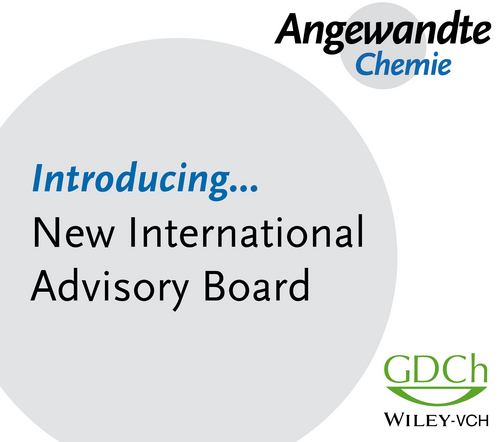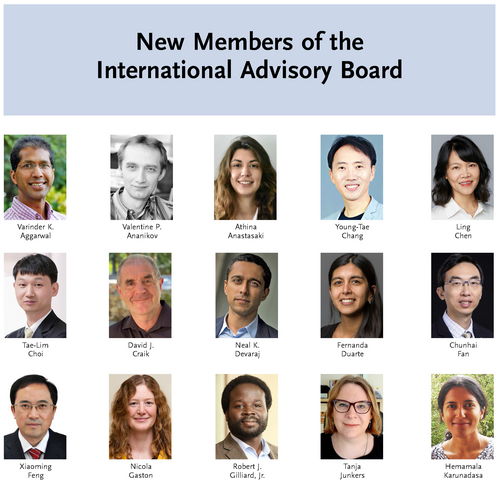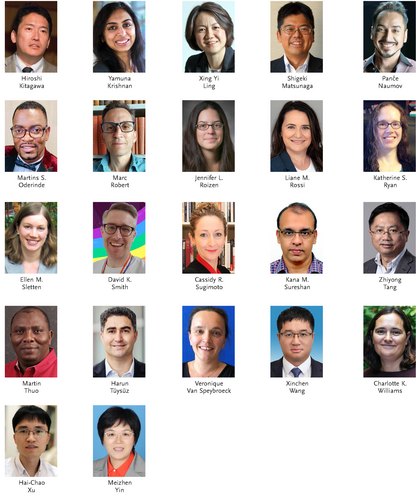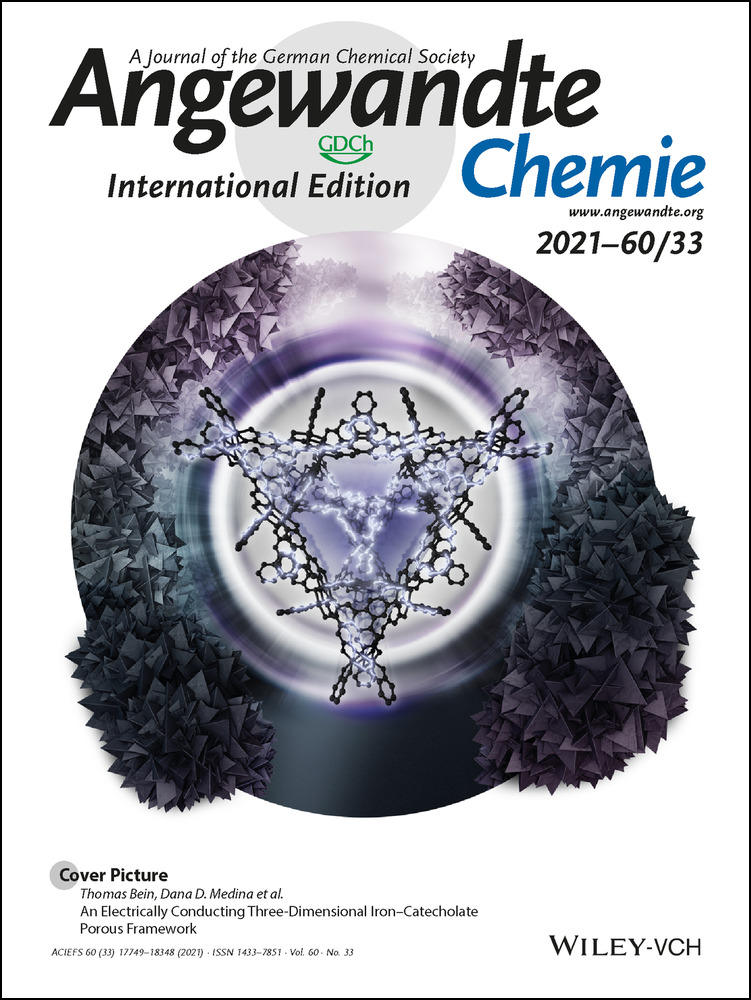Angewandte Chemie’s Redefined International Advisory Board: Strengthening Connections between the Journal and Its Community
Graphical Abstract
Over the past months, the Angewandte Chemie Council and the Executive Committee have carefully reflected on the role of the International Advisory Board (IAB) as we continue to transform Angewandte Chemie into a more inclusive home for excellent science. With the announcement of our redefined IAB in this Editorial, the new governance structure of Angewandte Chemie is completed.
Over the past months, the Angewandte Chemie Council and the Executive Committee of the journal have carefully reflected on the role of the International Advisory Board (IAB) as we continue to transform Angewandte Chemie into a more inclusive home for excellent science.1, 2 While we welcome and are grateful for comments and concerns raised by any member of our community, the members of the IAB will be a main point of contact between the journal and the community. As such, they need to represent the global and diverse nature of our current and future author- and readership. They will be supported in their outreach activities by the two Executive Editors that are the journal's regional representatives for Asia and the Americas, Dr. Xin Su and Dr. Suzanne Tobey. The IAB members will provide crucial feedback on editorial developments before implementation and help the journal in ensuring that any changes are beneficial to the chemistry community at large. Regular meetings will allow us to discuss ideas brought forward by the IAB as well as the Editorial team and the Advisory Editors, and select those with the greatest impact. For example, we will detail our efforts towards becoming an inclusive and equitable journal and increasing diversity among our authors, and our plans for maintaining the scientific excellence of all published content and further enhancing the quality and fairness of our peer-review processes. In addition, our IAB members will continue to provide guidance on topics and proposals for invited content, such as Reviews and Viewpoint Articles, and act as adjudicating reviewers.
With the announcement of our redefined IAB in this Editorial, the new governance structure of Angewandte Chemie is completed. The large and diverse group of scientists from across the globe that make up the IAB will give complementary input to that received from our ten Advisory Editors,3 who will provide advice both on difficult decisions on individual manuscripts and more generally on our scientific profile and editorial strategy and frequently interact with the in-house Editorial team. The input from these two groups together with that from the Editorial team will be used by the Angewandte Chemie Council to determine the strategic direction of the journal.
We are delighted that Annette G. Beck-Sickinger, previously Chair of the Editorial Board, will stay on as the Chair of the new IAB. The IAB Chair plays a key role in journal development as a voting member of the Angewandte Chemie Council, representing the views and concerns of the IAB and the journal's international reader- and authorship in particular, and acting as a direct link between the owner society, the German Chemical Society (GDCh), and the entire IAB.
The previous members of our Editorial and International Advisory Boards, whose input we have valued greatly for many years, will complete their terms of office as members of the redefined IAB. In addition, after a thorough selection process, 37 new members (see box and our homepage for additional information) have been elected by the Angewandte Chemie Council, upon recommendation from the GDCh, previous Board Members, and our Editorial team. All of them had previously interacted with the journal and supported us in various ways, and we value their scientific excellence and integrity.
Before inviting the new IAB members, the Angewandte Chemie Council discussed how to best balance board membership to ensure that the new IAB reflects the chemistry community, taking geography, gender, and career stage as well as groups that are currently underrepresented among our authors and reviewers and in chemistry in general into consideration. To reach a well-balanced IAB, the Council determined that it was important to increase the representation from those in the community who are in the early or middle stages of their career. Many of our new Board Members completed their PhD in the new millennium, and eight received their PhD since 2010. We look forward to the guidance of renowned DE&I advocates and a scientometrics expert, and as of January 2022, more than a third of our IAB members will be women. At the same time, the new IAB continues to represent the breadth of the chemistry published in the journal, from chemical biology to heterogeneous catalysis and from organic synthesis to energy materials.







